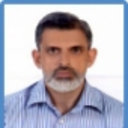Spanish
Albanian
Arabic
Armenian
Azerbaijani
Belarusian
Bengali
Bosnian
Catalan
Czech
Danish
Deutsch
Dutch
English
Estonian
Finnish
Français
Greek
Haitian Creole
Hebrew
Hindi
Hungarian
Icelandic
Indonesian
Irish
Italian
Japanese
Korean
Latvian
Lithuanian
Macedonian
Mongolian
Norwegian
Persian
Polish
Portuguese
Romanian
Russian
Serbian
Slovak
Slovenian
Spanish
Swahili
Swedish
Turkish
Ukrainian
Vietnamese
Български
中文(简体)
中文(繁體)
British Dental Journal 2018-12
Solo los usuarios registrados pueden traducir artículos
Iniciar sesión Registrarse
El enlace se guarda en el portapapeles.
La base de datos de hierbas medicinales más completa respaldada por la ciencia
- Funciona en 55 idiomas
- Curas a base de hierbas respaldadas por la ciencia
- Reconocimiento de hierbas por imagen
- Mapa GPS interactivo: etiquete hierbas en la ubicación (próximamente)
- Leer publicaciones científicas relacionadas con su búsqueda
- Buscar hierbas medicinales por sus efectos.
- Organice sus intereses y manténgase al día con las noticias de investigación, ensayos clínicos y patentes.
Escriba un síntoma o una enfermedad y lea acerca de las hierbas que podrían ayudar, escriba una hierba y vea las enfermedades y los síntomas contra los que se usa.
* Toda la información se basa en investigaciones científicas publicadas.


